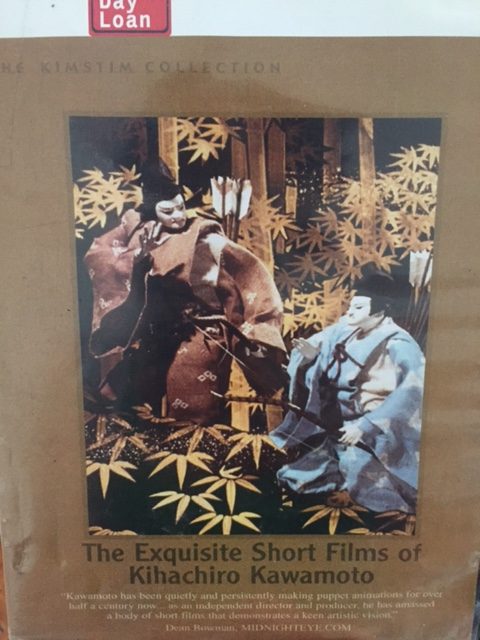I recently watched The Exquisite Short Films of Kihachiro Kawamoto. I had never heard of this animator and I did not know what type of animation I was going to get. But, being a fan of animation, I looked forward to watching the DVD.
After watching a few, I did a little research. It turns out that Kawamoto was a well-known animator in Japan and internationally. One of his signature animation styles is stop-motion animation, especially his use of puppets. As Wikipedia points out, Kawamoto was well known for his puppet making skills and design.
The Films
I wanted to share these films as another example of storytelling. Japan has so many traditional methods of storytelling, which these films are a part of. As far as World and Character go, many Japanese stories are set in the samurai/Edo period. Most of the films below are the same. I suppose that frees up the storyteller to focus on the subtleties of how the story is told, rather than convincing the audience that the world and characters are believable. For instance, in Dojoji, there’s a scene where the woman chases after the priest. I love that Kawamoto takes the time to animate her breathing.
All the Kawamoto films were good, but there were a few that stood out to me. Here they are below:
Dojoji
19 minutes
Dojoji is a well-known Japanese play and one of the few that involves a large prop. The play tells the story of the installation of a new bell in Dojo-ji Temple. After the monks have been hypnotized by a mysterious dancer, the abbot tells the story of what happened to the first bell. The story is a woman falls in love with a priest who stays in her father’s inn every year. When the woman admits her love, the priest rejected her. She pursues him anyway, across a river to Dojoji Temple. In her passion, she transforms into a demon that kills him and destroys the bell. Kawamoto’s version of Dojoji is the story of the woman and the traveling priest. It is very tragic.
Going into the story of Dojoji more, I’d heard of this story after watching a Japanology episode on Kabuki and Noh. Dojoji was one of the examples of Kabuki, which is more elaborate than Noh and features a female dancer.
I was very impressed with the beautiful watercolor backgrounds serving as the backdrop for Dojoji and House of Flame (below). The sets are also well done.
The Demon (or Oni)
7:30 minutes
The Demon is also based on an old story, but I did not come across any versions of it as a play. The story is that an old woman, who has had a hard life, now lives as an invalid with her 2 sons. One day they go out to hunt and come home to a shocking discovery.
The postscript of the story is: “It is said that parents in their old age become demons who will consume their children.” Maybe this is the origin of the practice explored in Ballad of Narayama?
House of Flame
19 minutes
House of Flame is another stop-motion puppet animation that caught my interest. This one animates a horse, very realistically. I was quite impressed. This is also the only story with a narrator for the puppets. The story is about a woman who cannot decide between two suitors and lives in guilt forever more.
As I mentioned above, this one is another example of beautiful backdrops and sets.
A Poet’s Life
19 min
I chose this story for the interesting story about a worker who is fighting for worker’s rights after losing his job. The details of this story are too unusual to give away, but it is a very unique story.
This animation is a drawn style, though it still could be stop motion using paper cutouts. It reminded me more of The Snowman, by Diane Jackson, because of the way the pencil markings jump around frame by frame.
